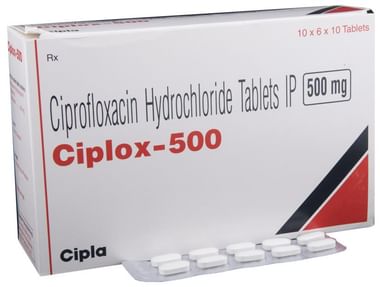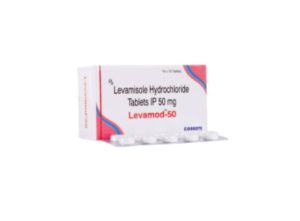
Ciprofloxacin is a widely used fluoroquinolone antibiotic. Here’s a comprehensive overview:
Description:
Ciprofloxacin is a synthetic broad-spectrum antibiotic that inhibits bacterial DNA gyrase and topoisomerase IV, leading to disruption in DNA replication and bacterial cell division. It is effective against many gram-negative and some gram-positive bacteria.
Brand Names:
- Cipro
- Cipro XR
- Ciprodex (combines ciprofloxacin with dexamethasone for ear infections)
- Ciloxan (ophthalmic solution)
- Ciproxin (varies by country)
Available Forms and Strengths:
- Tablets: 250 mg, 500 mg, 750 mg
- Oral Suspension: 250 mg/5 ml
- Injection: 200 mg/100 ml, 400 mg/250 ml
- Ophthalmic Solution: 0.3% concentration
- Otic Solution: 0.2% concentration (Ciprodex)
Uses:
- Respiratory Tract Infections: Including pneumonia and bronchitis
- Urinary Tract Infections: Both complicated and uncomplicated
- Skin and Soft Tissue Infections: Such as cellulitis and abscesses
- Bone and Joint Infections
- Intra-abdominal Infections
- Ophthalmic Infections: Conjunctivitis (with ophthalmic solution)
Side Effects:
- Common: Nausea, diarrhea, headache, dizziness, abdominal pain
- Serious: Tendon rupture, peripheral neuropathy, seizures, QT interval prolongation, hypersensitivity reactions (e.g., rash, anaphylaxis)
Dosage:
- Adults: Typically 250 mg to 750 mg twice daily, depending on the type and severity of the infection.
- For oral tablets: 500 mg to 750 mg every 12 hours
- For intravenous (IV) administration: 200 mg to 400 mg every 8 to 12 hours, depending on the infection
Contraindications:
- Hypersensitivity: Known allergy to ciprofloxacin or other fluoroquinolones
- Tendon Disorders: History of tendon rupture or related disorders
- Central Nervous System Disorders: Caution in patients with a history of seizures or other CNS conditions
Warnings:
- Tendon Risk: Increased risk of tendon rupture, especially in older adults and those on concurrent corticosteroids
- Central Nervous System Effects: Potential for seizures, increased intracranial pressure, and other CNS effects
- Cardiac Effects: Risk of QT interval prolongation, which can lead to serious heart rhythm disturbances
- Clostridium difficile: Risk of severe Clostridium difficile-associated diarrhea
Consult a healthcare provider for specific dosage recommendations and advice tailored to individual health needs and conditions.







